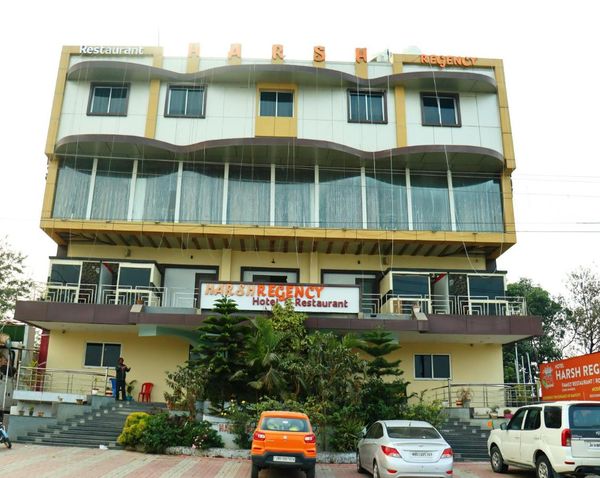Advanced Systems Thinking Training for Effective Education
 Farhan Mirza
12 Jan, 2025
8 mins read
107
Farhan Mirza
12 Jan, 2025
8 mins read
107

In the rapidly evolving world of education, professionals continuously seek innovative methods to enhance learning experiences and address complex challenges. One such groundbreaking approach is Systems Thinking Training a method that equips educators, administrators, and policymakers with tools to view problems holistically and create sustainable solutions. This advanced training transforms how education is delivered, preparing individuals to tackle interconnected issues effectively.
What is Systems Thinking?
Systems Thinking is a methodology that focuses on understanding the relationships and interactions within a system rather than isolating its individual components. In the context of education, it enables educators to comprehend how various elements—students, teachers, curriculum, administration, and societal influences—interact and influence one another.
For example, a decline in student performance may not solely stem from inadequate teaching methods but could also involve factors like student well-being, parental involvement, or community support. Systems Thinking Training teaches educators to identify these underlying connections, enabling them to address root causes rather than symptoms.
Why is Systems Thinking Training Essential in Education?
Educational systems today face intricate challenges that require multidimensional solutions. From improving student outcomes to implementing inclusive curriculums and addressing resource disparities, the problems demand a comprehensive approach. Systems Thinking Training is essential because:
- Holistic Problem Solving: It helps educators and administrators consider all aspects of an issue, ensuring solutions address the core problem.
- Improved Decision-Making: Training sharpens the ability to anticipate the consequences of decisions, reducing unintended outcomes.
- Enhanced Collaboration: It fosters better communication among stakeholders by emphasizing interconnectedness.
- Adaptability to Change: Systems Thinking equips educators with the flexibility to adapt to dynamic educational environments.
Benefits of Advanced Systems Thinking Training for Educators
Advanced Systems Thinking Training builds on foundational principles and dives deeper into practical applications and complex problem-solving strategies.
Here’s how it benefits educators:
Strategic Curriculum Development
Through Systems Thinking Training, educators can design curriculums that address not only academic goals but also social, emotional, and behavioral aspects of learning. This ensures a balanced approach that caters to diverse student needs.
Improved Classroom Management
By understanding the dynamics within a classroom, teachers can create a harmonious environment where students thrive. Systems Thinking offers insights into managing conflicts, fostering teamwork, and promoting active engagement.
Data-Driven Insights
Training emphasizes analyzing patterns and trends in data to identify systemic issues. For instance, analyzing attendance records alongside academic performance can reveal hidden factors affecting student success.
Sustainability in Educational Practices
Systems Thinking encourages sustainable practices by focusing on long-term impacts rather than short-term fixes. This approach ensures that improvements remain effective over time.
Key Components of Advanced Systems Thinking Training
Advanced training programs incorporate a blend of theoretical knowledge and practical tools to ensure participants are well-equipped to apply Systems Thinking in real-world scenarios. Some of the core components include:
System Mapping
Participants learn to create visual representations of systems, showcasing the relationships and feedback loops between different components. This helps identify bottlenecks and leverage points for intervention.
Scenario Analysis
Training includes exercises in exploring various "what-if" scenarios to prepare educators for potential challenges and outcomes.
Stakeholder Engagement
Advanced training emphasizes collaboration with all stakeholders—students, parents, administrators, and community members—to ensure inclusive decision-making.
Case Studies and Simulations
Practical examples and role-playing exercises allow participants to apply Systems Thinking principles to complex educational challenges.
How to Implement Systems Thinking in Education
The transition from training to implementation is critical. Here’s how educators can integrate Systems Thinking into their practices:
Start Small
Focus on specific challenges within your institution, such as improving student participation or streamlining administrative processes. Apply Systems Thinking principles to test and refine solutions.
Promote a Culture of Collaboration
Encourage open communication among educators, administrators, and families. Systems Thinking thrives in environments where diverse perspectives are valued.
Use Technology as an Enabler
Leverage tools like system modeling software or data analytics platforms to visualize and analyze systems effectively.
Continuous Learning
Keep refining your skills through workshops, peer learning, and advanced training sessions. Systems Thinking is a lifelong skill that evolves with practice.
The Future of Systems Thinking Training in Education
As education systems become increasingly complex, the demand for Systems Thinking Training will continue to rise. Institutions worldwide are recognizing its value in addressing systemic issues like equity, inclusion, and sustainability. Advanced training programs are becoming integral to professional development for educators, ensuring they are prepared to lead meaningful change.
Conclusion
Systems Thinking Training is no longer a luxury but a necessity in the field of education. By adopting this advanced approach, educators can unlock their potential to create transformative learning environments. Whether it’s enhancing classroom dynamics, developing inclusive curriculums, or addressing systemic challenges, Systems Thinking provides the tools needed for effective education.
Investing in Systems Thinking Training is an investment in the future—empowering educators to foster environments where both students and institutions thrive. If you're an educator or administrator ready to make a difference, consider enrolling in an advanced Systems Thinking Training program today. Your journey toward impactful education begins here.
Written By:
Farhan Mirza



Hotels at your convenience
Now choose your stay according to your preference. From finding a place for your dream destination or a mere weekend getaway to business accommodations or brief stay, we have got you covered. Explore hotels as per your mood.





